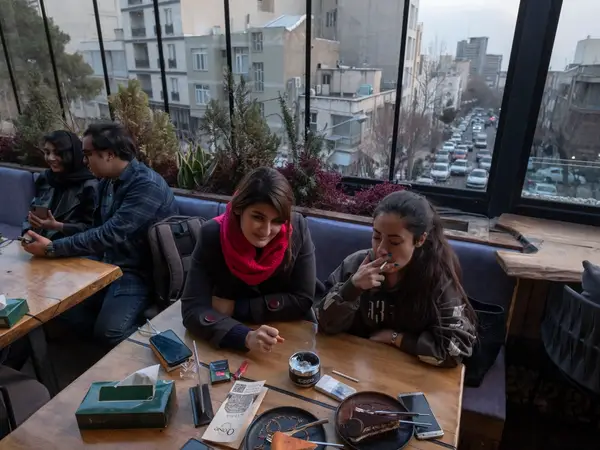Friday imams across Iran excessively eulogized Supreme Leader Ali Khamenei and demanded tighter hijab control and enforcement of the Ramadhan restrictions.
“His highness the Supreme Leader is the best personality [created] after the Imam of the Age,” Kazem Sadighi, Friday imam of Tehran told his congregation Friday in his first sermon of the new Iranian year.
In Shiite eschatology, the twelfth imam, Mahdi, is a messianic figure thought to have been in occultation by divine will since 941 CE. He is referred to as the Imam of Ages who will appear at the end of time to cleanse the world of sin and evil. Khamenei’s devotees often refer to him as the representative of the Imam of Ages, with absolute power to rule.
Sadighi also promised that Iranians will make the world a better place under Khamenei’s banner who he said is the commander-in-chief of all of the world’s oppressed people and “the resistance front” against the world powers and “an example [for mankind], an imam, a leader and divine executive.”
“The esteemed Leader has waged war on Satan and named this year as the year bridling inflation and boosting production,” another imam in the southern city of Shiraz, Ayatollah Lotfollah Dozhakam said in his sermon while exhorting his congregation to obey Khamenei.
“We can’t claim we are Muslims and awaiting the appearance of the Imam of Ages but do not obey his representative (Khamenei),” Dozhakam said.
Another Khamenei appointed Friday imam, Hojjat ol-Eslam Mahmoud Noorpour who also represents him in the northern Golestan Province told his congregation that hijab is “the most important institution of the Islamic Republic” and urged the authorities to enforce it at government offices, public places, hospitals and pharmacies, shops, and schools and universities.
Many women have been refusing to wear the compulsory hijab since September when anti-government protests engulfed the country in reaction to the death of the 22-year-old Mahsa (Jina) Aamini in the custody of the morality police. The young woman was arrested and taken to a detention center because the morality police patrols deemed her hijab not appropriate enough.
Photos and videos posted on social media these days show many women stepping into shops and banks and riding on public transport with no headscarf. To the religious and hardline political establishment, refusal to wear the hijab is nothing short of open defiance of the regime and its ideology.
But it is not only the hijab that they are worried about these days. The month of Ramadhan has arrived. For decades, the regime has banned all eating, drinking, and smoking in public including at workplace and schools before dusk when those who fast can begin eat and drink.
Clerics have even coined a term for the acts of eating, drinking, or smoking in public during the fasting hours which could very loosely be translated into “showing off in public that one is not fasting”. This ‘crime’ is punishable by ten to sixty days of prison or up to 74 lashes.
Even girls as young as nine are required to abide by the fasting rules at school because it is the age they are believed to be mature enough to wear the hijab and to fast. For boys the age of maturity comes much later, at fifteen.
“Respecting the holiness of the month of Ramadhan is a must for all. Showing off that one is not fasting is even worse than not fasting,” Ghorbanali Dorri-Najafabadi, the Friday imam of the city of Arak said while his peer in Gonbad, Noorpour, urged the police and state-sponsored vigilantes who are mainly responsible for warning those who do not abide by the hijab to “take decisive action against those who break the law.”
